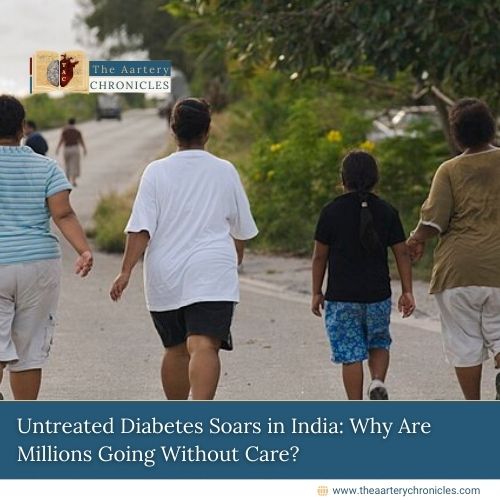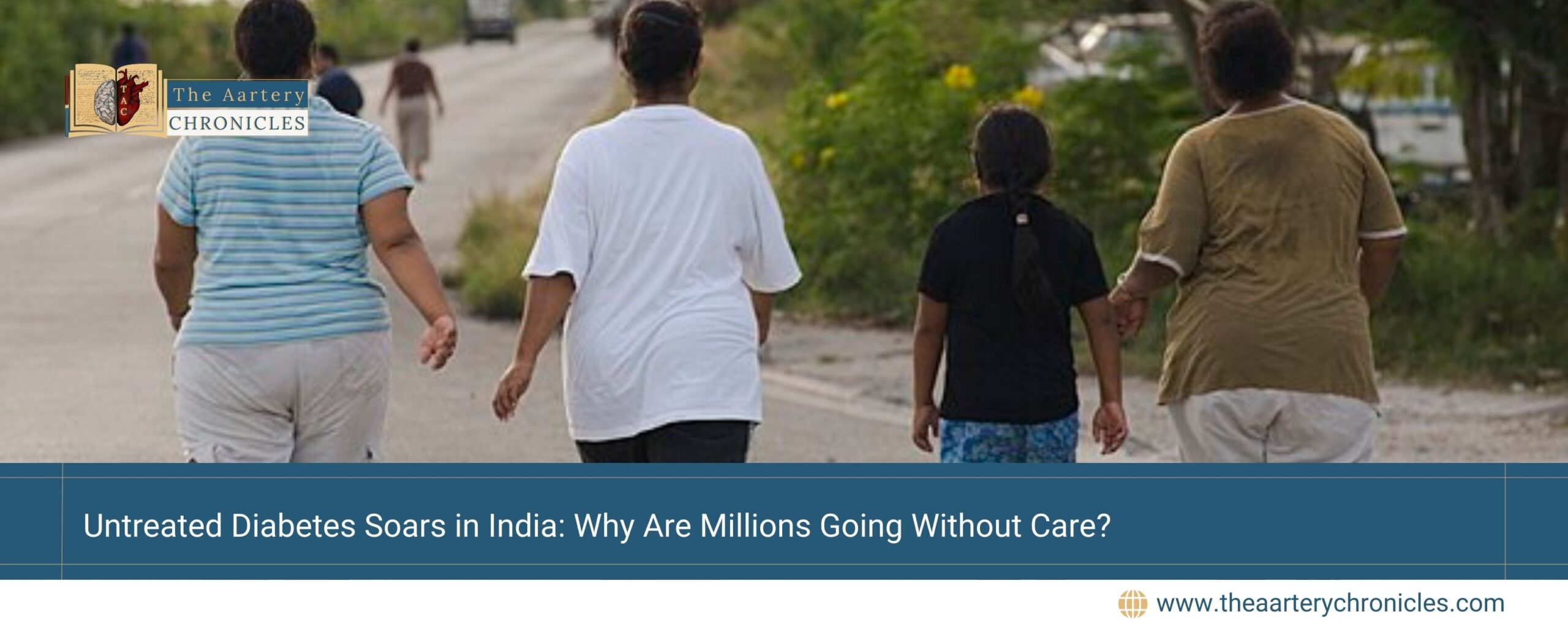

Untreated Diabetes Soars in India: Why Are Millions Going Without Care?
Overview
India has emerged as the country with the highest number of untreated diabetes cases, according to a recent study published in The Lancet medical journal. The findings shed light on the growing diabetes burden and the lack of adequate treatment coverage, which poses a significant public health challenge.
Global Diabetes Statistics
The study, conducted by the NCD Risk Factor Collaboration (NCD-RisC) in collaboration with the World Health Organization (WHO), revealed that in 2022, an estimated 828 million adults globally were living with diabetes. Among them:
- India: 212 million (highest globally)
- China: 148 million
- United States: 42 million
- Pakistan: 36 million
- Indonesia: 25 million
- Brazil: 22 million
Diabetes Trends in India
The prevalence of diabetes in India has nearly doubled over the last three decades.
- Among women: 11.9% in 1990 to 24% in 2022
- Among men: 11.3% in 1990 to 21.4% in 2022
Despite this sharp rise, treatment coverage has seen only a marginal increase:
- For women: 21.6% in 1990 to 27.8% in 2022
- For men: 25.3% in 1990 to 29.3% in 2022
Barriers to Treatment in India
Experts attribute India’s high untreated diabetes rate to several factors:
- Limited access to healthcare facilities: Many rural and underserved areas lack proper medical infrastructure.
- Socio-economic challenges: Financial constraints prevent individuals from seeking timely care.
- Cultural perceptions and alternative therapies: A reliance on non-conventional methods, such as self-medication or alternative therapies, often delays proper treatment.
- Lack of awareness: Many individuals remain unaware of the risks and management strategies for diabetes.
Call for Action
Healthcare professionals stress the need for collaborative efforts to address this crisis. Dr. Jain suggests that early detection and continuous care can significantly improve diabetes outcomes. He advocates for partnerships among government bodies, healthcare providers, and community organizations to enhance awareness, improve health literacy, and ensure equitable healthcare delivery.
Dr. Anoop Misra, Chairman of Fortis C-DOC, highlighted that many people attempt lifestyle modifications or self-medicate before seeking professional help, often waiting until complications arise. He emphasized the urgency for targeted interventions and improved treatment coverage.
Conclusion
The Lancet study serves as a wake-up call for India to prioritize diabetes management. Strengthening healthcare systems, promoting early detection, and ensuring affordable treatment are critical steps to mitigate the growing burden of untreated diabetes and improve the quality of life for millions across the country.
Source: Inputs from various media Sources









